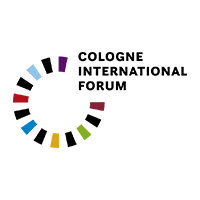Film: Research Cluster Conflict-Induced Displacement: Feedback Workshop Bafoussam, November 2023
The International Research Cluster “Conflict-Induced Displacement” studies the changing socio-economic situations of people involuntarily displaced by two neglected violent conflicts: the Anglophone conflict in Cameroon and the 2021 military coup in Myanmar.
The Anglophone conflict, which sparked in 2016 and is still ongoing, has led to significant displacement in the two English-speaking regions of Cameroon. The conflict is rooted in the country’s colonial and post-colonial history and pits state forces against armed separatist groups that seek political independence for the country’s Anglophone minority. As of January 2024, 638,421 Anglophones have been internally displaced and 86,000 have sought refuge in neighboring Nigeria (OCHA Cameroon 2024).1 A considerable number have fled to Bafoussam, the nearest major city in French-speaking Cameroon that offers security and job opportunities. Prior to the conflict, there had already been a lively exchange with the neighboring regions, so that some of the internally displaced persons (IDPs) were able to tap into existing networks. To further understand the changing livelihood strategies and economic resource dynamics of the IDPs, the project team conducted fieldwork in Bafoussam. Five months later, they returned to hold a feedback workshop with the research participants they had previously interviewed. The goal of the meeting was to share the results of the data collected during fieldwork and present the key findings about IDPs’ livelihood changes and labor market integration.
The film invites us to accompany the project team to this feedback workshop, held at an NGO in Bafoussam in November 2023. It was produced by Mélanie Simons and the members of Subproject 1 „Changing Livelihood Strategies and Economic Resource Dynamics of Persons Internally Displaced by the Anglophone Conflict in Cameroon“ of the International Research Cluster “Conflict-Induced Displacement”, Roland Balgah, Efeutlancha Forji Angelus, Nembot Kengne Elie and Michaela Pelican. Our special thanks go to the research participants who generously agreed to share their experiences with us and to the Cologne International Forum (CIF), University of Cologne, for enabling the project.
